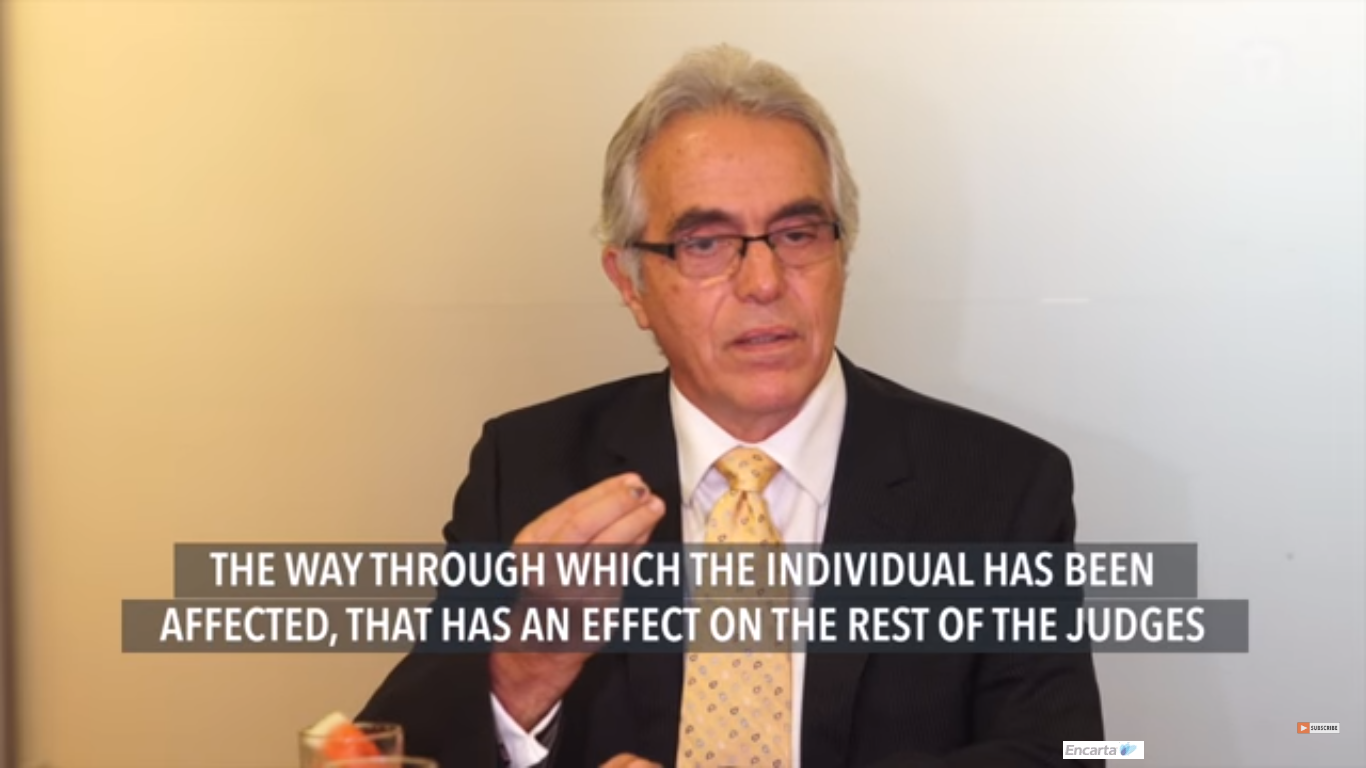Another UN Rapporteur Speaks: Media Misses the Point, Lacks Context

Screenshot from Rappler’s official YouTube channel.
PRESIDENT RODRIGO Duterte has nothing but feisty words for anyone who dares comment on or question his style of governance, especially when the critic is a foreigner.
During his press conference on June 4 before his departure for South Korea, a visibly irate Duterte chastised Diego García-Sayán, United Nations (UN) Special Rapporteur on the Independence of Judges and Lawyers, for “interfering” with the country’s internal affairs, hurling expletives, saying that the UN official can “go to hell.”
García-Sayán, was in the country for an “academic visit” when he spoke to journalists in a press briefing on June 1 at the Manila Polo Club in Makati City. He described the “worrisome deterioration of the rule of law” in the Philippines, adding that the turn of events at the Supreme Court (SC) had a “chilling effect” on the judiciary, in reference to the ouster of the chief justice by quo warranto. García-Sayán noted that this was done after Duterte’s public attacks against Maria Lourdes Sereno.
Earlier in May 2017, another UN Special Rapporteur for Extrajudicial Summary or Arbitrary Executions Agnes Callamard attended a human rights and drug policy forum. Even before her academic visit, Callamard’s statements against reported extrajudicial killings in the country had already provoked Duterte’s hostility, with the president threatening to slap her. Callamard’s visit and the exchange of statements between the president and the UN official was covered widely by the press.
But much of media ignored García-Sayán’s visit and his statements, only publicizing his presence when Duterte already spoke about it days after. Focusing on Duterte’s tirade, media reports failed to take note of the weight of the rapporteur’s statements in relation to another development: the decision of the International Criminal Court (ICC) to start its preliminary examination of the evidence showing countless killings related to the government’s war on illegal drugs.
CMFR monitored reports from newspapers Manila Bulletin, the Philippine Daily Inquirer, The Philippine Star, Daily Tribune, Malaya Business Insight, Manila Standard and The Manila Times; free TV newscasts 24 Oras (GMA-7), Aksyon (TV5), News Night (CNN Philippines) and TV Patrol (ABS-CBN 2); as well as select news websites from June 1 to 8, 2018.
Almost ignored
Reviewing the above free TV news platforms, CMFR noted that only 24 Oras and TV Patrol included García-Sayán’s statements in the news. Both followed up with reports on Duterte’s response.
The topic received much less attention from the newspapers. Only the Inquirer and the Standard reported García-Sayán’s views on the state of the country’s judiciary (“Sereno ouster worries UN expert; he’s misinformed, says Palace”; “UN executive weighs in on Sereno ouster”, June 2). The subject only appeared as a reference in the Bulletin, Star, Malaya, Times and Tribune when these reported Duterte’s outburst.
For the majority of the media, the development had importance only in terms of the president’s reaction to it.
But the UN rapporteur’s observation should be seen in the context of the ICC’s preliminary examination, announced in February this year, which aims to establish whether there is enough basis for the international tribunal to proceed with an investigation. That decision provoked Duterte in March to announce the Philippines’ withdrawal from the Rome Statute which created the ICC.
Cheers
CMFR cheers Rappler for making the critical connection, looking into the potential effects of García-Sayán’s statements on the ICC process.
Right off, Rappler sought the views experts to talk about the topic in its June 1 report (“UN Rapporteur: Judicial independence in PH under attack”).
Lawyer Tony La Viña, international law expert and former Ateneo School of Government dean, told Rappler that the UN rapporteur’s statements would have a significant effect. La Viña argued that if courts “are not independent or under threat, they cannot be expected to hold officials committing crimes against humanity accountable.” With this, “[the] requirement of complementarity is met,” with the international system of accountability under the ICC taking effect on the Philippines, he said. Complementarity requires the complaint to await results from efforts on a national level, primarily the judiciary.
In the same article, Ray Paolo Santiago, Philippine Coalition for the ICC chairperson, agreed with La Viña on the relevance of this development, pointing out that García-Sayán’s comments “can be considered” by the ICC’s Office of the Prosecutor in determining the principle of complementarity.
CMFR notes the increasingly narrow scope given to news that reflects negatively on government, particularly on the president. This goes hand in hand with the parochial mindset of most media, the failure shows up how the press in the country is not quite in sync with the increasingly global context of news.
These limitations do not bode well for current vigor of press freedom nor for the quality of the news service.
Leave a Reply